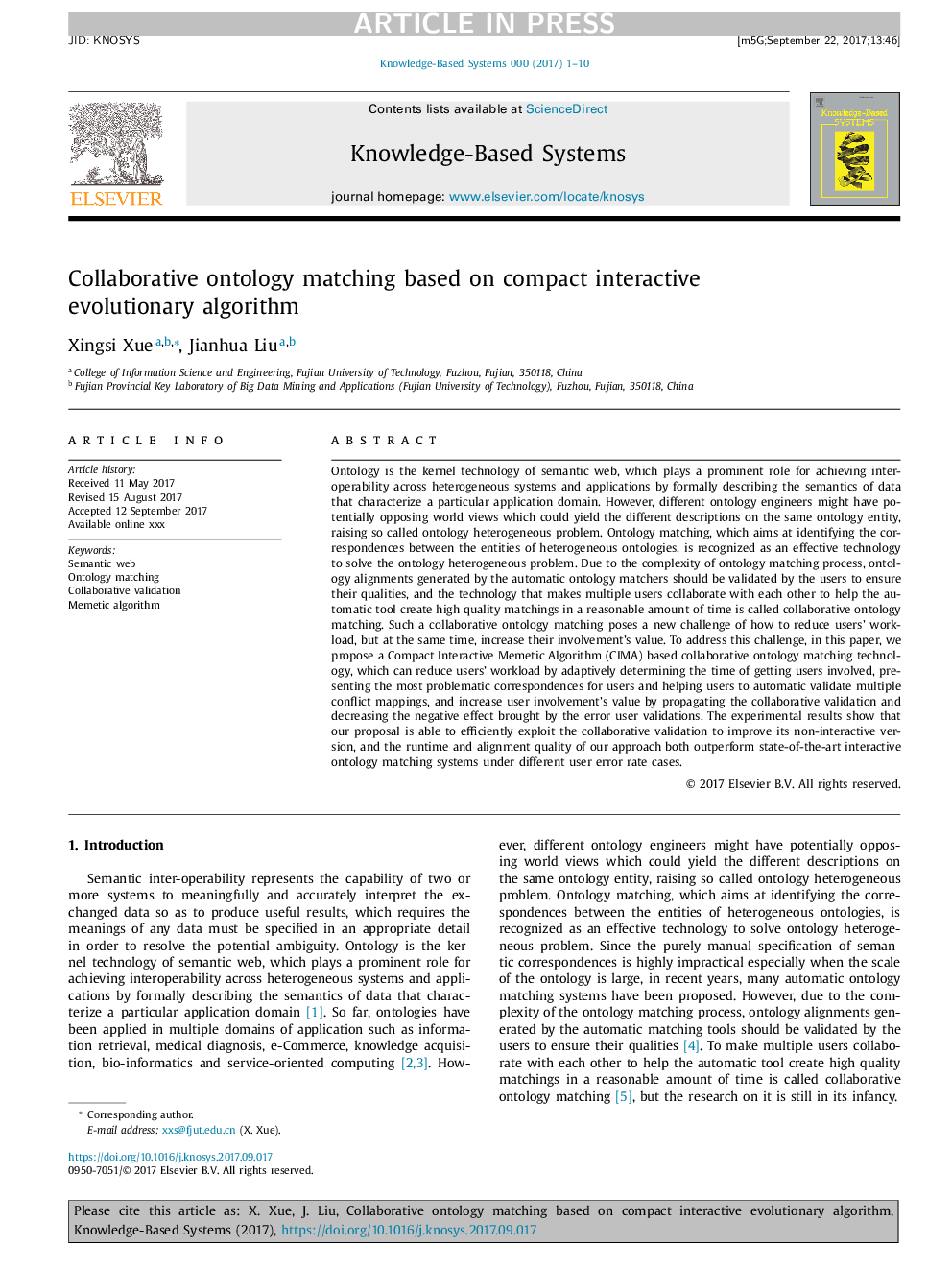| کد مقاله | کد نشریه | سال انتشار | مقاله انگلیسی | نسخه تمام متن |
|---|---|---|---|---|
| 6862134 | 1439264 | 2017 | 10 صفحه PDF | دانلود رایگان |
عنوان انگلیسی مقاله ISI
Collaborative ontology matching based on compact interactive evolutionary algorithm
ترجمه فارسی عنوان
تطبیق هستی شناسی همکاری بر اساس الگوریتم تکاملی تعاملی جمع و جور
دانلود مقاله + سفارش ترجمه
دانلود مقاله ISI انگلیسی
رایگان برای ایرانیان
کلمات کلیدی
موضوعات مرتبط
مهندسی و علوم پایه
مهندسی کامپیوتر
هوش مصنوعی
چکیده انگلیسی
Ontology is the kernel technology of semantic web, which plays a prominent role for achieving inter-operability across heterogeneous systems and applications by formally describing the semantics of data that characterize a particular application domain. However, different ontology engineers might have potentially opposing world views which could yield the different descriptions on the same ontology entity, raising so called ontology heterogeneous problem. Ontology matching, which aims at identifying the correspondences between the entities of heterogeneous ontologies, is recognized as an effective technology to solve the ontology heterogeneous problem. Due to the complexity of ontology matching process, ontology alignments generated by the automatic ontology matchers should be validated by the users to ensure their qualities, and the technology that makes multiple users collaborate with each other to help the automatic tool create high quality matchings in a reasonable amount of time is called collaborative ontology matching. Such a collaborative ontology matching poses a new challenge of how to reduce users' workload, but at the same time, increase their involvement's value. To address this challenge, in this paper, we propose a Compact Interactive Memetic Algorithm (CIMA) based collaborative ontology matching technology, which can reduce users' workload by adaptively determining the time of getting users involved, presenting the most problematic correspondences for users and helping users to automatic validate multiple conflict mappings, and increase user involvement's value by propagating the collaborative validation and decreasing the negative effect brought by the error user validations. The experimental results show that our proposal is able to efficiently exploit the collaborative validation to improve its non-interactive version, and the runtime and alignment quality of our approach both outperform state-of-the-art interactive ontology matching systems under different user error rate cases.
ناشر
Database: Elsevier - ScienceDirect (ساینس دایرکت)
Journal: Knowledge-Based Systems - Volume 137, 1 December 2017, Pages 94-103
Journal: Knowledge-Based Systems - Volume 137, 1 December 2017, Pages 94-103
نویسندگان
Xingsi Xue, Jianhua Liu,
